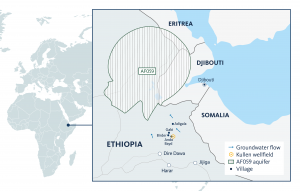Having access to water and sanitation has been recognized as a human right since 2010. But water is also essential to ensuring the fulfilment of many other rights.
In 2010, the human rights to safe and clean drinking water and adequate sanitation were formally recognized by the United Nations. The United Nation’s Human Rights Council expressed that the rights to water and sanitation are “derived from the right to an adequate standard of living and inextricably related to the right to the highest attainable standard of physical and mental health, as well as the right to life and human dignity.” The resolution established that the entitlements and freedoms, including access to safe drinking water and sanitation, correspond to binding international law on the state as a duty-bearer.
Five years later, this contributed to the inclusion of a specific goal for water and sanitation in the 2030 Agenda. The Agenda’s Sustainable Development Goal 6 seeks to ensure “availability and sustainable management of water and sanitation for all” by 2030. The Goals envisage “a world of universal respect for human rights and human dignity”. But without significantly raised ambitions, the goal is not likely to be achieved by 2030, according to the UN-Water Progress Update 2021: SDG 6 Water and Sanitation for All.
Water underpins many human rights
In 2020, a UN report described how water pollution, water scarcity and water-related disasters have disproportionate effects upon vulnerable and marginalized groups and their human rights to life, health, and a safe, clean, healthy, and sustainable environment. This perspective is increasingly important since the climate crisis, conflicts and the COVID-19 pandemic are causing widening gaps between different groups. The UN Special rapporteur on poverty and human rights, Philip Alston, has warned that this can undermine the human rights of the poor and cause a new form of “climate apartheid”
Access to clean water and safe sanitation has proved to be one of the most efficient ways to break that cycle and close the gaps between different groups. When water is available at home, girls and women are more likely to get an education and income since they are no longer expected to walk long distances to fetch water. Access to sanitation services and wastewater treatment systems improve health and reduce the risk of diseases caused by faecal waste polluting drinking water, which means that more children will go to school, and more adults can work. This, in turn, reduces inequalities.
The key to ensuring human wellbeing, health, and dignity is to look at human rights as a policy tool, taking a people-centric approach. States, UN agencies, international development partners, and donor agencies need to do more to safeguard the human rights to water and sanitation because this is an important objective in itself and because it is so crucial to many other human rights. Strategies to reduce inequalities in access to water and sanitation must be formulated and acted upon.











